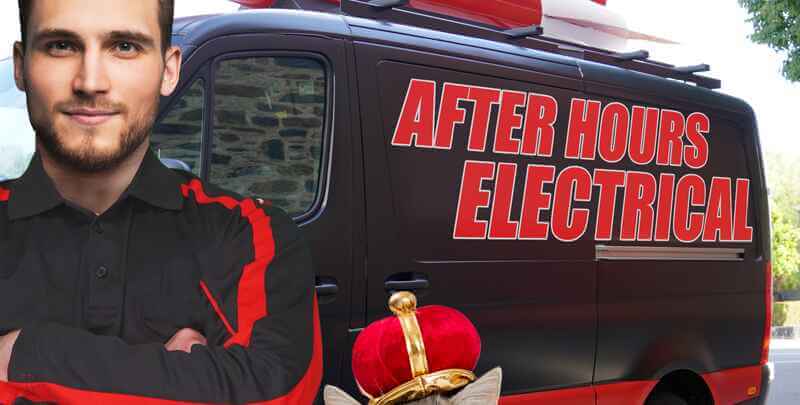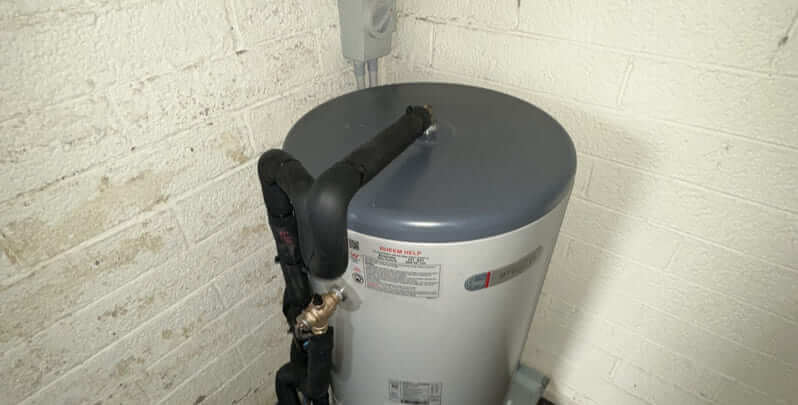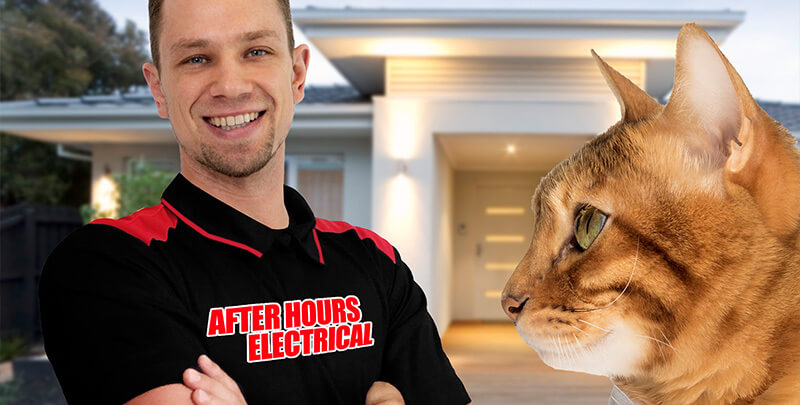6 Common Electric Water Heater Problems and How To Fix Them

Many homeowners across the country rely on electric hot water systems to keep the hot water flowing, whether it's for a relaxing morning shower or tackling the washing up. But, like most major household appliances, they're not completely immune to experiencing a hiccup or two in their lifetime.
Some electric water heater problems are simple enough to handle, while others may need a bit more expertise from a licensed electrician. By nipping these electrical issues in the bud as early as possible, you can keep your hot water heater running smoothly and avoid those dreaded moments of cold water. Let’s explore some of the most common problems and how to resolve them safely!
Problem 1: Tripped Circuit Breaker
One of the most common electric hot water heater problems is a tripped circuit breaker, which can leave you with no or not enough hot water. This usually happens when there’s a power surge, or the water heater’s electrical components overload the circuit.
Thankfully, this one is a relatively simple fix. All you need to do is check the circuit breakers in your switchboard and reset the dedicated hot water system breaker.
However, if it keeps tripping, there may be more serious underlying electrical issues like faulty wiring or an aging circuit. In this instance, you’re best off calling a licensed electrician to investigate. They’ll examine your electric water heater and make sure it is safe and working properly.
Problem 2: Faulty Thermostat Settings
If your water is too hot or not warm enough, faulty or incorrect thermostat settings could be the issue. The thermostat controls the water temperature in your electric hot water system. Gas water heaters have the same. If you haven’t set it properly, you might find yourself with temperatures at either extreme – ice cold or scalding hot water.
To resolve this problem, check the thermostat settings to ensure they are within the recommended range, typically between 60°C and 65°C. If adjusting the settings doesn’t solve the problem, the issue might be a malfunctioning thermostat. In that case, you’ll need a licensed electrician to replace it and get your hot water system working properly and safely once again.
Problem 3: Malfunctioning Heating Element
If the volume and or quality of your hot water is seriously lacking – either you’re not getting enough or it’s lukewarm at best – then a malfunctioning heating element might be to blame.
Electric water heaters feature a lower and an upper heating element. Both elements work together to heat the water in your hot water tank. Over time, these elements can wear out or develop faults, which reduces their efficiency and effectiveness.
A licensed electrician can use a multimeter to test the heating elements for continuity. If one or both elements are faulty, they can replace them for you. It’s best to use a skilled technician for the job instead of going the DIY route, as working with electrical components in your hot water system requires expertise. Besides, water and electricity have never been the best of friends, so best to avoid the mix of the two.

Problem 4: Water Heater Not Receiving Power
Expecting a piping hot shower, only to be blasted with a barrage of cold water instead? Your electric hot water heater might not be receiving power.
There could be numerous reasons why this issue might be occurring, including:
- a damaged power cord
- a faulty electrical connection
- a problem with the circuit breaker
A good starting point is to check your water heater is plugged in properly and the power cord isn’t damaged. Next, check your switchboard to see if the dedicated water heater circuit breaker has tripped.
If everything appears OK but your power supply and electric hot water system just aren’t coming together, it’s time to call a licensed electrician. They’ll examine the electrical components and recommend the best course of action – whether it’s repair or replacement.
Problem 5: Strange Noises From the Water Heater
Strange popping, hissing, or rumbling noises coming from your hot water heater are clear-cut signs that something isn’t right.
These odd noises are often caused by sediment build up, either at the base of the storage tank or around the heating elements. Minerals in the stored water can settle and harden over time, which makes it harder for the heating elements to work efficiently. This can cause the elements to overheat and make popping sounds as they struggle to heat the water.
The best way to address this problem is to drain the tank and remove the sediment and mineral buildup. You may need the expertise of hot water specialists to replace any damaged elements.
Problem 6: Rusty Coloured Water
Rusty water coming from your taps is a potential sign of corrosion inside your hot water tank. Over time, the interior of storage tank hot water systems can rust.
This is even more likely if the anode rod, which helps prevent corrosion, has deteriorated. The purpose of the anode rod is to protect the tank by attracting corrosive particles in the water. When the rod eventually wears out, the tank becomes vulnerable to rust, which can discolour your water.
You’ll need to replace the anode rod to resolve this issue, and the ideal time to do it is before the rust damage becomes severe. Regular maintenance, including checking the anode rod, can prevent a rusty water supply and keep your hot water system working efficiently.
The Consequences of Not Servicing Your Electric Hot Water System
Of course, if you’d rather avoid any of these issues as much as possible, regular servicing and maintenance of your electric water heater is necessary. Ignoring your maintenance duties can lead to several negative consequences for your hot water system, such as:
- Reduced efficiency: Sediment build up in the tank reduces heating efficiency, making your water heater work harder and use more energy.
- Water damage: An unresolved water leak can damage your home, leading to costly repairs and possible mould growth.
- Shortened lifespan: Lack of regular upkeep can cause parts to wear out faster, reducing the overall lifespan of the heater.
- Safety hazards: A malfunctioning thermostat or pressure relief valve can create unsafe conditions, including water that is too hot or potential tank ruptures.
Even the best electric hot water systems can be susceptible to the occasional problems. But by regularly servicing your electric water heater, you can prevent these issues, and keep your system working safely for years to come.

Why You Need a Licensed Electrician for Water Heater Repairs
When dealing with hot water system problems, especially problems related to the electrical side of things, using a licensed electrician is a must.
Though you might consider some minor issues as easy to repair, working with electrical components in your hot water system can be dangerous. Licensed electricians have the knowledge and tools to safely diagnose and repair faults. They can also guarantee your electric hot water system is up to code and working properly.
By hiring a professional, you’re keeping your home safe, your hot water flowing smoothly, and avoiding future problems with your electric water heater.
Keep Your Electric Water Heater Running Smoothly
Dealing with electric water heater problems can be frustrating, especially when they disrupt your daily routine.
From tripped circuit breakers to a faulty thermostat or heating element, these problems often need more than a quick band-aid fix. By addressing them early and calling in a licensed electrician when necessary, you can ensure your electric hot water system runs efficiently and safely. Regular maintenance, such as draining the tank to prevent sediment buildup, can also help prolong the life of your hot water unit.
So, if you’re experiencing any of these common problems, don’t wait—take action now to keep your hot water flowing without a hitch!
Please note: Thanks for reading our blog “6 Common Electric Water Heater Problems and How To Fix Them”. This information is provided for advice purposes only. Regulations differ from state to state, so please consult your local authorities or an industry professional before proceeding with any work. See After Hours Electrical’s Terms & Conditions here.
